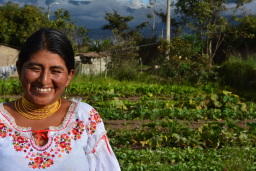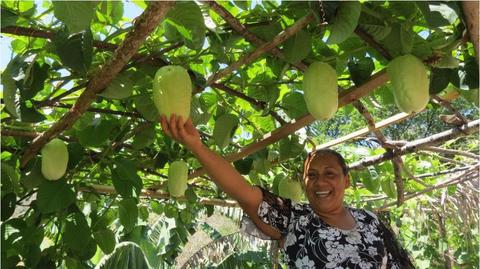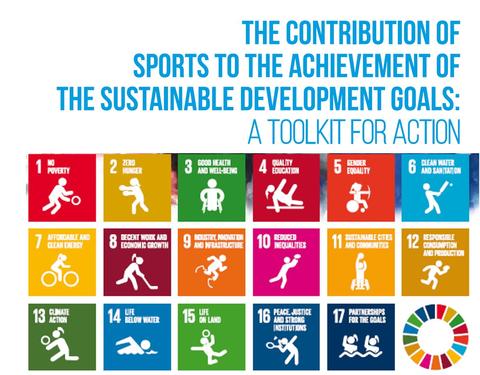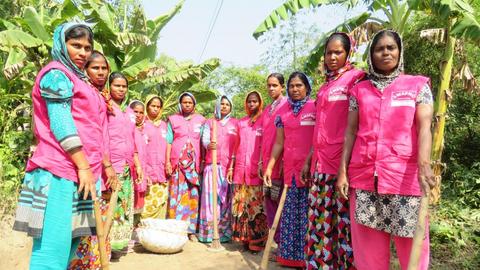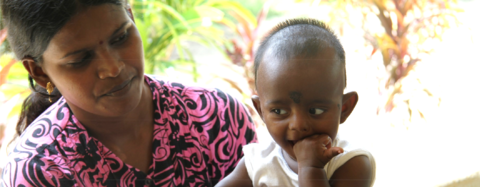October 11, 2016
Empowering women in new ways: Sustainable rice production in San Pedro, Cote d’Ivoire
By Oumar Gadji Soumaila, with interviews by Jenny Christelle Debrimou
More than five years have passed since the 2010-11 post electoral crisis in Côte d'Ivoire, which severely damaged the country’s infrastructure and economy. Despite having an economic growth rate of about 8%, there remains a lack of job creation and opportunities for its growing population due to decline in public investment. The coastal region of San Pedro, located in southwestern Côte d'Ivoire, is home to the second largest port of the country and has one of the highest rates of population growth in the region. In fact, for the past 25 years, the population has more than tripled, from around 600,000 inhabitants in 1988 to above 2,000,000 in 2012. Despite having great agricultural potential, this growing population, especially vulnerable women and young people, faces acute unemployment and food insecurity.
To address these challenges, the SDG Fund (SDG-F) along with UN agencies (UNDP, UNICEF, FAO) and local organizations (ANADER, the local Port Authority) launched a joint programme in 2014 to reduce poverty by providing basic needs for the at-risk population in the San Pedro region. The programme is working to create jobs by empowering local communities, especially women and young people, through technical and financial support, in various sectors ranging from agriculture to education and health care.
Young people of San Pedro. The SDG Fund programme is working to reduce poverty and create opportunities
Women’s empowerment and gender equality are the main challenges identified through the program activities. Women participating in the program have organized themselves in groups or cooperatives, engaging in garden production, rice farming, paddy rice processing and marketing. In fact, the 474 cooperative members working in rice farming and raising livestock, of which 35% are women, have started increasing their production. Indeed, these women became familiar with administrative management and accounting tools, leading them to expand their production.
With the support of ANADER, FAO and UNDP, recipients were able to improve food security and their household productivity through promotion of innovative agricultural techniques. Agricultural equipment improved rice productivity per hectare by helping to develop bottomland and increase use of improved seeds.
Coulibaly Fatoumata is President and Founder of the cooperative “La Fontaine de Tui”, a group of 23 women recipients of the joint program. Says Coulibaly, “Receiving this technical and financial support helped us women of Tui become autonomous and support our husbands in their daily responsibilities and tasks. We assisted our family by providing them with attieke, our basic food from cassava, and helped send our children back to school and feed them with the rice at the school canteen”.
San Pedro women celebrating successful farming production
As a result 82% of the new jobs created are held by women. In addition, the cooperative “Netrari” which specializes in paddy rice production, grew from 4 members in 2009 to 452 members, of which 110 are women, through technical and financial support from UNDP. For Maiga Mohamed, President of the Netrari cooperative, “We were able to bleach our collected paddy rice, store it and have the women resell it using the new agricultural equipment. We produced 500 tons of paddy rice this year and we will be able to expand our production to 1000-1500 tons by 2017-2019”. Looking forward, the cooperative is seeking the rehabilitation of rural roads as it can ultimately allow products to reach the market at a faster rate, thereby increasing food production and incomes alike.
Stories of success from the aforementioned cooperatives, along with other initiatives of the Côte d’Ivoire Poverty Reduction Joint Programme, demonstrate that the production of rice, through more sustainable practices, is strengthening the capabilities of women’s organizations for networking, cooperative management and simplified accounting. These practices are improving the economic conditions of women in San Pedro region.
San Pedro women transforming Cassava into attieke through the donated grinder

